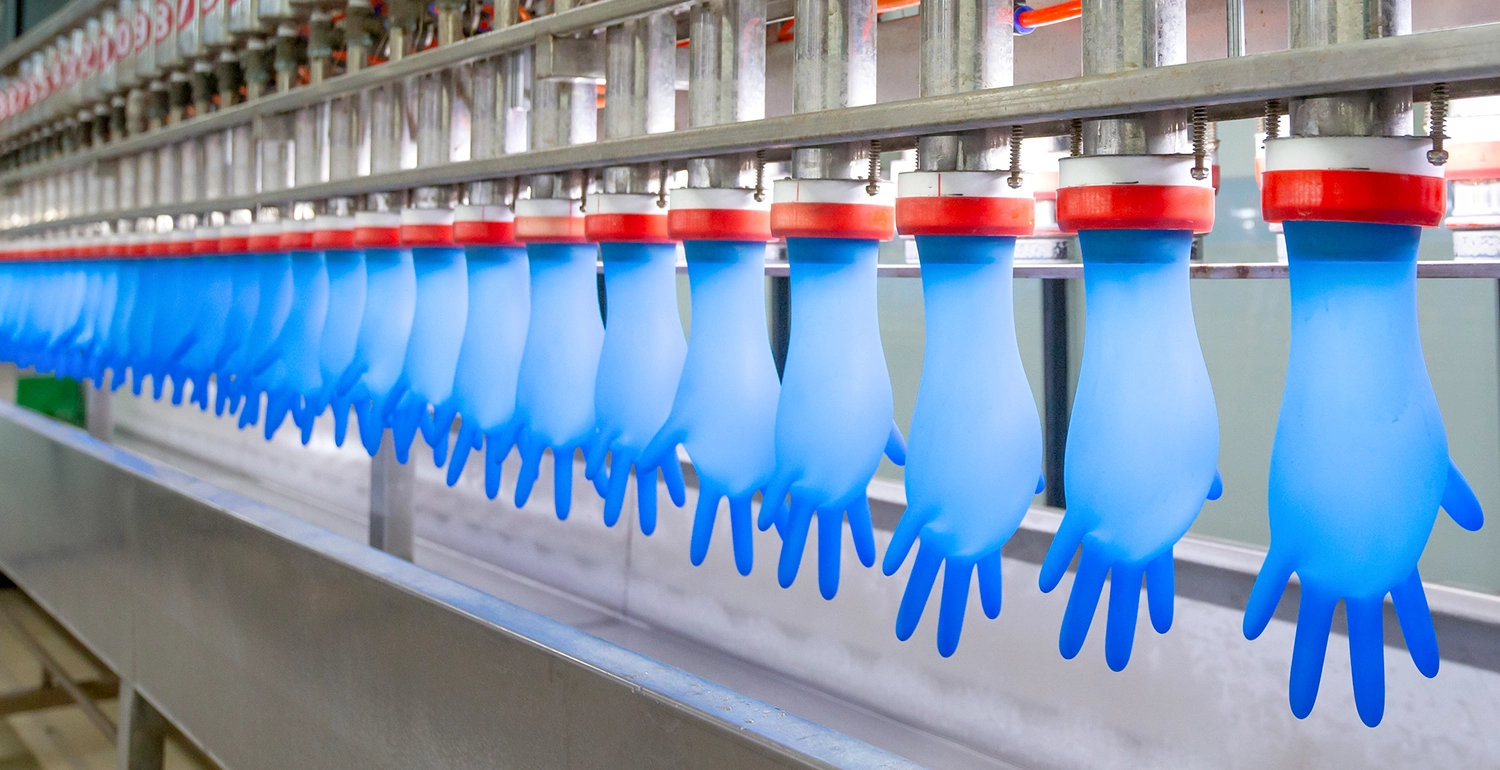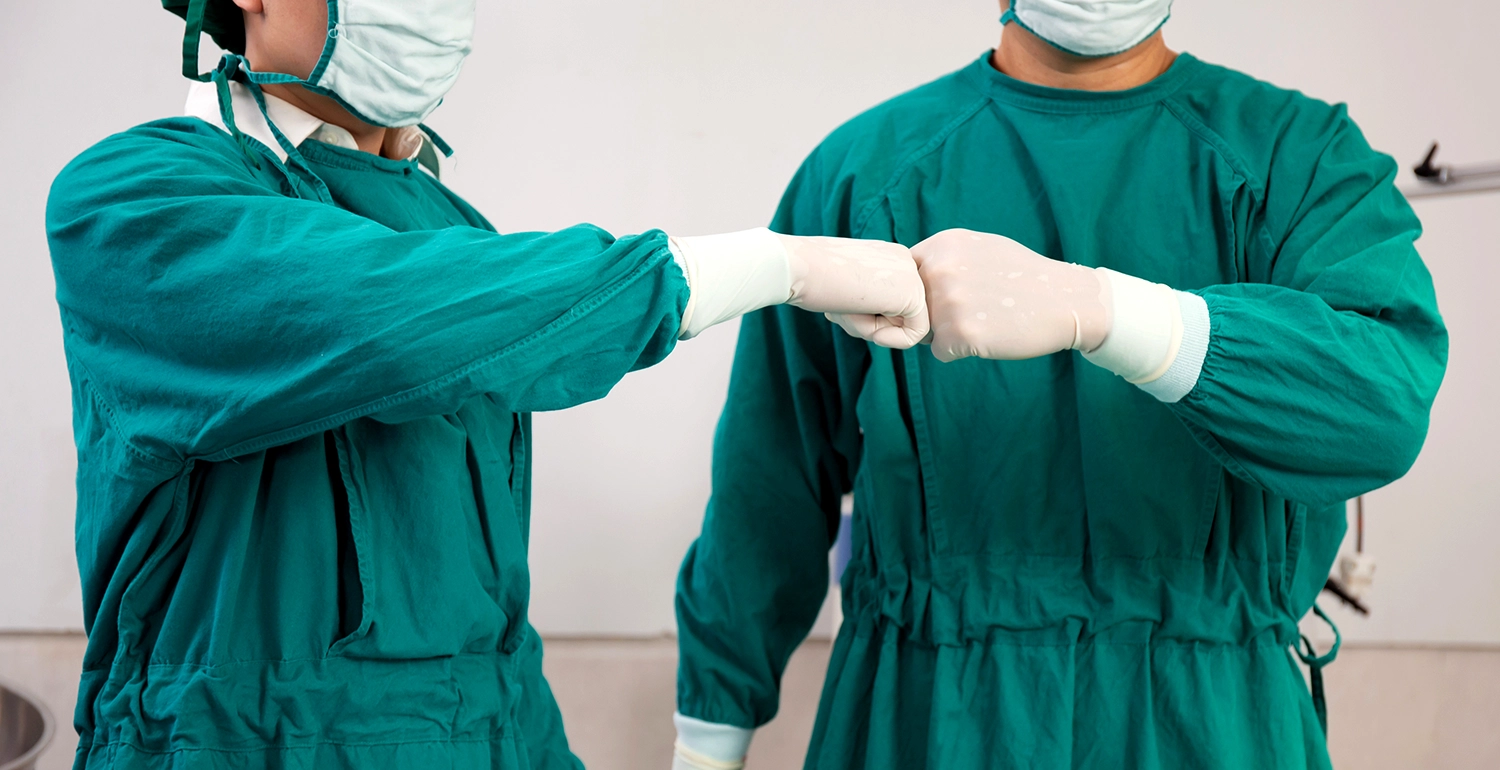Acceptable Quality Level (AQL) is a statistical quality control measure used to determine the maximum acceptable number of defective products in a batch. It is widely used in the manufacturing of medical and surgical gloves to ensure that they meet strict safety and performance standards. A lower AQL indicates a higher quality level, as fewer defective gloves are allowed per batch.
For instance:
- AQL 1.5 means a maximum of 1.5% defects per tested batch.
- AQL 2.5 allows for 2.5% defects, meaning a higher defect tolerance.
Since surgical gloves are critical in preventing contamination and ensuring sterility in medical procedures, a low AQL value is essential to maintain patient and healthcare worker safety.
Surgical gloves serve as a primary barrier between medical professionals and patients, reducing the risk of infection. Ensuring a low AQL is crucial for several reasons:
- Prevention of Contamination Gloves with a low AQL are less likely to have pinholes or defects, reducing the risk of exposure to bloodborne pathogens and harmful microorganisms.
- Regulatory Compliance Many countries and organizations require surgical gloves to meet strict AQL standards to ensure high-quality control and patient safety.
- Durability and Performance Gloves with fewer defects provide better tensile strength, elasticity, and resistance to tearing, ensuring reliability during surgeries.
- Reduced Healthcare Risks Using gloves with a higher defect rate increases the chance of surgical site infections (SSI), cross-contamination, and glove failure, which can have severe consequences in sterile environments.

Surgical gloves must comply with various international regulations to ensure they meet safety and performance requirements. Some of the key standards include:
- FDA (U.S. Food and Drug Administration) Requires surgical gloves to have a maximum AQL of 1.5 for pinhole defects.
- ISO 10282 & ISO 11193 (International Standards Organization) Establishes AQL guidelines for surgical and examination gloves.
- EN 455 (European Standard) Defines the quality and performance requirements for medical gloves, including a mandatory AQL of 1.5.
- ASTM D3577 & ASTM D6319 (American Society for Testing and Materials) Specifies material and performance standards for latex and nitrile gloves.
Compliance with these standards ensures that surgical gloves are safe, durable, and effective in protecting against contamination.
AQL testing is conducted through random sampling to inspect gloves for defects. The process follows these key steps:
- Batch Sampling A predetermined number of gloves are randomly selected from a production lot.
- Defect Testing Gloves are tested for defects, primarily pinholes, tears, and material weaknesses.
- Testing Methods
- Water Leak Test: Gloves are filled with water and monitored for leaks.
- Air Inflation Test: Gloves are inflated to check for weaknesses.
- Pass or Fail Criteria If the number of defective gloves is within the AQL limit, the batch passes. If defects exceed the limit, the batch is rejected or requires reinspection.
For example, in a batch of 10,000 gloves with AQL 1.5, a sample of 500 gloves might be tested:
- If ≤7 gloves have defects → The batch passes.
- If >7 gloves have defects → The batch fails and must be re-evaluated.

The AQL value selected for gloves depends on their intended use:
- Surgical Gloves Require an AQL of 1.5 or lower, ensuring minimal defects and maximum protection in sterile environments.
- Examination Gloves Typically have an AQL between 2.5 and 4.0, as they are used in lower-risk medical procedures.
- General-Purpose Gloves May have a higher AQL (4.0 or above), as they are used in non-medical applications where sterility is less critical.

For hospitals and medical institutions, choosing AQL 1.5 or lower is highly recommended to reduce contamination risks and ensure compliance with international safety standards.
AQL plays a vital role in the quality assurance of surgical gloves. Ensuring that gloves comply with AQL 1.5 or lower helps to:
- Enhance infection control
- Ensure compliance with global medical standards
- Provide superior durability and performance
- Reduce healthcare risks for both patients and medical staff
When selecting surgical gloves, healthcare providers and procurement teams should always verify AQL compliance to maintain the highest levels of safety and effectiveness in medical environments.
